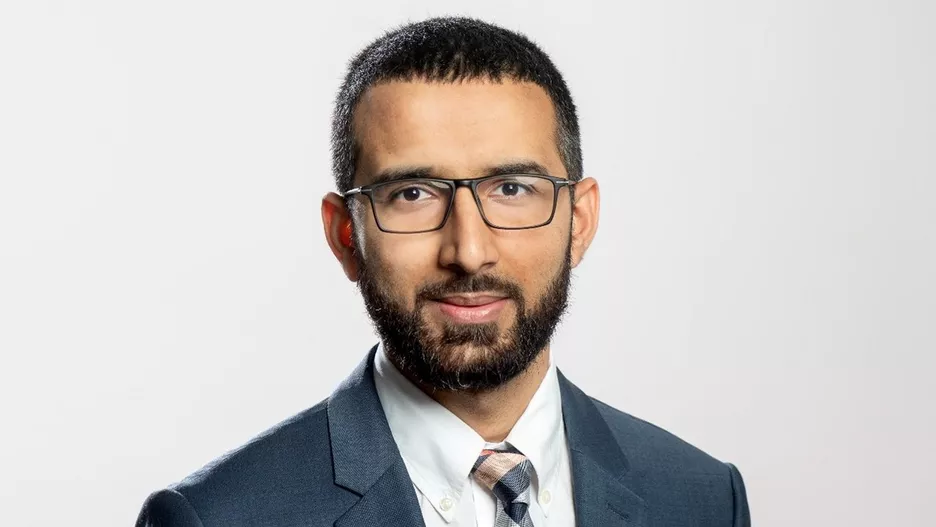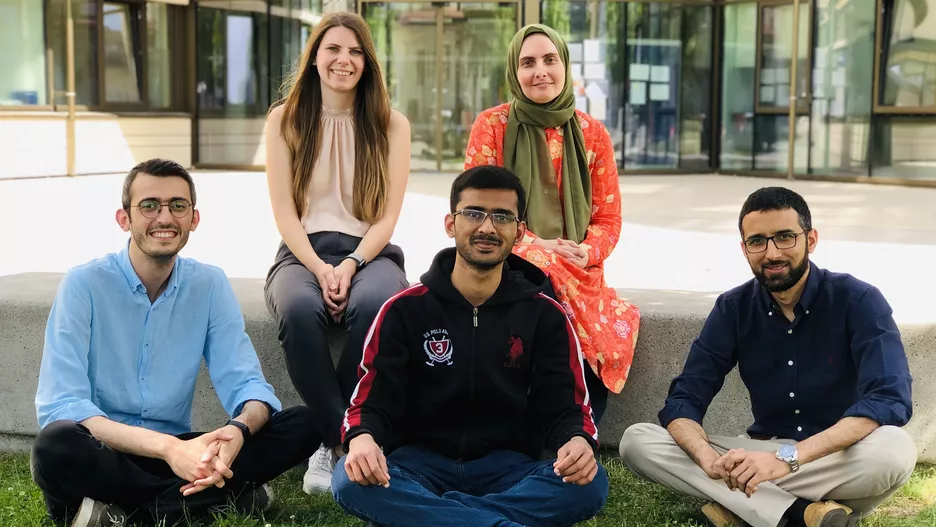This content is only available in English
Ghulam Destgeer - Control and Manipulation of Microscale Living Objects

Research Focus
Our research is focused on a range of topics including developing “acousto-microfluidics” platforms for contactless manipulation of micro/nano particles, cells, droplets, and microorganisms, “lab on a chip” technologies for single cell and single molecule analyses using droplet microfluidics platform, “stop flow lithography” processes for fabrication of multi-material, amphiphilic, shape-coded 3D particles using 3D printed micro-devices, “lab on a particle” technologies using amphiphilic particle-templated droplets for diagnostic bioassays, etc. Conventional biosensing schemes, e.g. enzyme-linked immunosorbent assays, detect low analyte levels through enzymatic signal amplification, however these assays typically measure the bulk signal from a single or few reactions, leading to compromised detection sensitivity and accuracy. We wish to democratize a versatile platform to compartmentalize and perform reactions in uniform nanoliter to sub-nanoliter-scale volumes using microscale multi-material particles that form a single droplet per particle for an amplification assay. Our ‘lab on a particle’ system provides customizable shape-coded particle for multiplexing, flexibility to be scaled up, and ease of implementation with existing amplified assay workflows, enabling 100s to 1000s of parallel reactions upon simple mixing of reagents. Our amphiphilic particles with a hydrophilic inner hollow layer and hydrophobic outer layer provide a versatile and scalable platform to form highly uniform aqueous droplets (200pL to 6nL) in the center of the particles suspended in an oil phase. Immobilization anchors such as biotin can be added to the inner layer during the fabrication process. We are working to further the development and dissemination of this newly envisioned 'lab on a particle' technology for the diagnostics, therapeutics and translational cancer research. Additionally, we are developing miniaturized microfluidic platforms for efficient handling and manipulation of microfluids and micro-objects for biomedical applications for various applications, such as cancer diagnostics, directed cellular evolution, isolation and enrichment of low abundance analytes from a sample, etc. We are constantly tailoring our platforms to address the technological needs of our collaborators in the preclinical and clinical laboratories.

Ghulam Destgeer studied mechanical engineering at GIK Institute, Pakistan (2010), and obtained his MS and PhD degrees in the field of acousto-microfluidics from KAIST, South Korea (2018). He conducted his postdoctoral research in the Di Carlo Lab at University of California, Los Angeles (UCLA). In November 2020, he joined TranslaTUM as a Tenure Track Assistant Professor in the Department of Electrical and Computer Engineering, where he leads the research group “Control and Manipulation of Microscale Living Objects”. Before that, he pioneered the acousto-microfluidic research at KAIST during his graduate studies, where he explored the use of travelling surface acoustic waves to efficiently manipulate micro-objects inside a microfluidic channel and a sessile droplet. At UCLA, he contributed to the development of newly envisioned ‘Lab on a Particle’ technology that uses amphiphilic, 3D structured and shape-coded particles to form uniform particle-templated droplets or ‘dropicles’ upon simple mixing of reagents. These ‘dropilces’ are used for amplified affinity based immunoassay or single cell/molecule analysis. He has coauthored more than 35 peer-reviewed articles in renowned journals of ‘Lab on a Chip’, ‘Analytical Chemistry’, ‘Advanced Science’, etc. He has presented his research work at more than 10 international platforms that include several invited talks.
- Brain Korea 21 Plus Postdoctoral Fellowship, NSF, South Korea (2018)
- Brain Korea 21 Plus Best Researcher Award, NSF, South Korea (2017)
- Best Paper Award, The Korean Society of Visualization (2016)
- Best Paper Award, ASME-JSME-KSME Joint Fluids Engineering Conference (2015)
- Best Paper Award, The Korean Society of Visualization (2014)
Destgeer, G., Ouyang, M., and Di Carlo, D. (2021). Engineering design of concentric amphiphilic microparticles for spontaneous formation of picoliter to nanoliter droplet volumes. Analytical Chemistry 93.
Park, J., Destgeer, G., Afzal, M., and Sung, H. J. (2020). Acoustofluidic Generation of Droplets with Tunable Chemical Concentrations. Lab on a Chip 20.
Destgeer, G., Ouyang, M., Wu, C-Y., and Di Carlo, D. (2020), Fabrication of 3D concentric amphiphilic microparticles to form uniform nanoliter reaction volumes for amplified affinity assays. Lab on a Chip 20.
Destgeer, G., Hashmi, A., Park, J., Ahmed, H., Afzal, M., and Sung, H. J. (2019). Microparticle Self-assembly Induced by Travelling Surface Acoustic Waves. RSC Advances 9.
Destgeer, G., Alam, A., Ahmed, H., Park, J., Jung, J. H., and Sung, H. J. (2018). Characterization of Microchannel Anechoic Corners Formed by Surface Acoustic Waves. Applied Physics Letters 112.
Park, J., Destgeer, G., Kim, H., Cho, Y., and Sung, H. J. (2018). In-droplet microparticle washing and enrichment using surface acoustic wave-driven acoustic radiation force. Lab on a Chip 18.
Ahmed, H., Destgeer, G., Park, J., Jung, J. H., and Sung, H. J. (2018). Vertical Hydrodynamic Focusing and Continuous Acoustofluidic Separation of Particles via Upward Migration. Advanced Science 5.
Destgeer, G., Jung, J. H., Park, J., Ahmed, H., Park, K., and Sung, H. J. (2017). Acoustic impedance-based manipulation of elastic microspheres using travelling surface acoustic waves. RSC Advances 7.
Park, J., Jung, J. H., Destgeer, G., Ahmed, H., Park, K., and Sung, H. J. (2017). Acoustothermal tweezer for droplet sorting in a disposable microfluidic chip. Lab on a Chip 17.
Destgeer, G., Cho, H., Ha, B. H., Jung, J. H., Park, J., and Sung, H. J. (2016). Acoustofluidic Particle Manipulation inside a Sessile Droplet: Four Distinct Modes of Particle Concentration. Lab on a Chip 16.
Ghulam Destgeer, PhD
Technical University of Munich
Department of Electrical and Computer Engineering
Phone: +49 89 4140 9037
E-Mail
Team Assistant
Nadia Mohammed
Phone +49 89 4140 9033
E-Mail